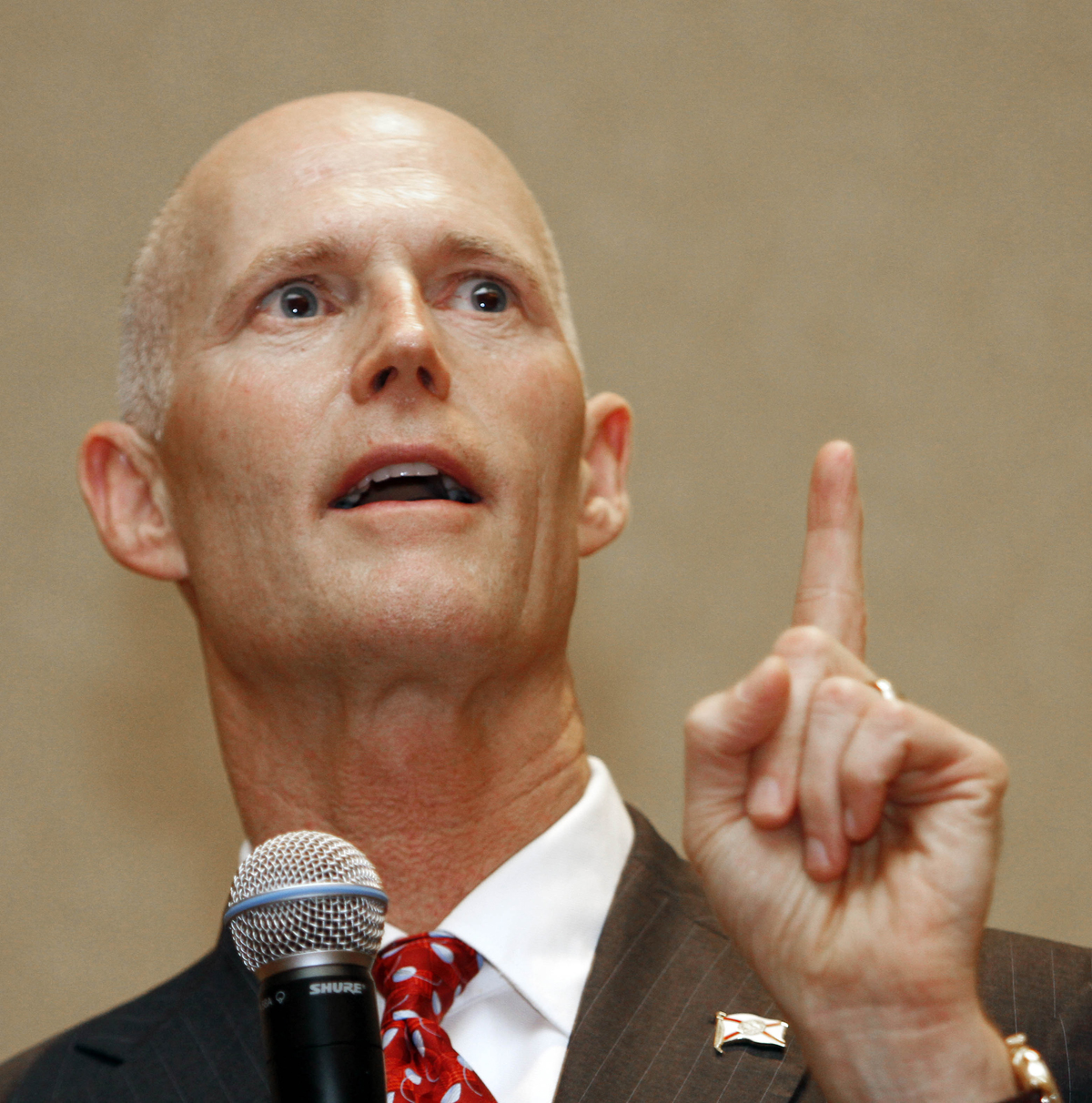Most Republican governors, leery of the strong negative reaction in Wisconsin to Scott Walker’s provocative attack on public sector union collective bargaining rights, have steered away from enthusiastically endorsing him.
But not Florida’s Rick Scott! In a preview of an interview to be televised this weekend on “Political Capital With Al Hunt,” published by Bloomberg, the governor, fresh off his high-profile cancellation of a high-speed rail line between Tampa and Orlando, effusively backed Walker’s union-busting initiative.
He said Florida would be better off if public employees couldn’t form unions and that it’s unfair to taxpayers that state workers don’t contribute to their pensions.
“Our state workers don’t pay for anything into their pension plan. And we can’t afford that — it’s not fair to taxpayers,” Scott said. “If you didn’t have collective bargaining, would it be better for the state? Absolutely.”
Now seems like a good time to outsource some rage to David Cay Johnston, the former New York Times reporter and tax expert. On Thursday, Johnston lambasted “deeply flawed coverage” of Walker’s pension fund rhetoric for fundamentally misrepresenting the truth about public sector worker pensions. According to Johnston, “out of every dollar that funds Wisconsin’s pension and health insurance plans for state workers, 100 cents comes from the state workers.”
How can that be? Because the “contributions” consist of money that employees chose to take as deferred wages — as pensions when they retire — rather than take immediately in cash. The same is true with the health care plan. If this were not so a serious crime would be taking place, the gift of public funds rather than payment for services.
Thus, state workers are not being asked to simply “contribute more” to Wisconsin’s retirement system (or as the argument goes, “pay their fair share” of retirement costs as do employees in Wisconsin’ s private sector who still have pensions and health insurance). They are being asked to accept a cut in their salaries so that the state of Wisconsin can use the money to fill the hole left by tax cuts and reduced audits of corporations in Wisconsin.
The labor agreements show that the pension plan money is part of the total negotiated compensation. The key phrase, in those agreements I read (emphasis added), is: “The Employer shall contribute on behalf of the employee.” This shows that this is just divvying up the total compensation package, so much for cash wages, so much for paid vacations, so much for retirement, etc.
The entire column is very much worth reading.
But Scott’s misrepresentation of what’s really going on with public sector workers is hardly the only whopper in his interview. He also went after President Obama:
Scott, 58, in Washington for a weekend meeting of the National Governors Association, criticized President Barack Obama’s performance, saying he hasn’t shifted toward the center since the November elections cost Democrats control of the House and shrank their Senate majority.
“What’s changed?” Scott said. “We still have ridiculously high taxes. We’re walking into a $1.6 trillion deficit.”
It’s hard to know where to start.. One of Obama’s biggest legislative “achievements” since the November election was a tax cut deal with Republicans that lowered taxes. Federal taxes now account for only 14.8 percent of GDP, the lowest mark since the presidency of Harry Truman.
Florida is going to have a lot of fun with Rick Scott as its governor for the next four years.


